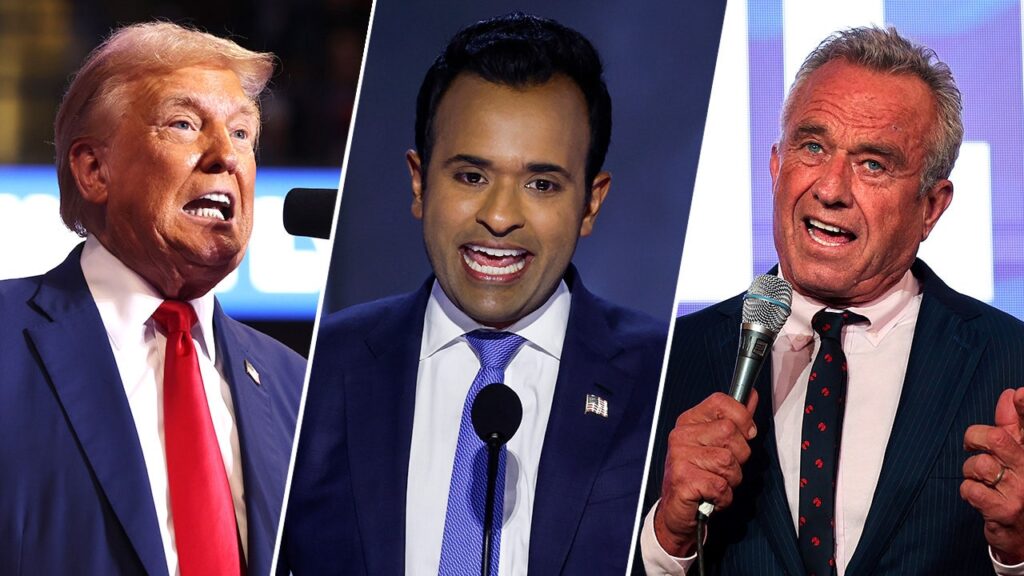WASHINGTON — President Donald Trump honored fallen Florida police officers at the White House Monday, just shy of four months from the day he released from prison hundreds of domestic terrorists who assaulted police to further his coup attempt after he lost the 2020 election.
“I’ll stand by for my invitation,” said Harry Dunn, a former Capitol Police officer who was among the hundreds who were punched, kicked, hit with boards, stabbed with flag poles and attacked with bear spray on Jan. 6, 2021. “I’m glad law enforcement does get recognition. It is a hard, thankless job that the law enforcement officers do daily. I just wish the thanks didn’t have to come from a 34-time convicted felon.”
More than 140 police officers were injured by Trump’s mob. One, Brian Sicknick, died hours after being assaulted, and four others died by suicide in the weeks and months to follow. Trump did not attend the service for Sicknick in the Capitol. Nor did he reach out to his family, or to those of the others.
“Surprised it’s not a joint invitation with the criminals he pardoned since he views them in the same light,” Dunn said.

AP Photo/Evan Vucci, File
The Oval Office ceremony awarded medals to three Palm Beach County sheriff’s deputies who died after being struck by a driver on a road near Trump’s Mar-a-Lago country club last year. The commemoration came two days after the end of “police week,” as Trump had proclaimed the week of May 11-17.
The event took place the same day Trump’s Department of Justice agreed to pay the family of Jan. 6 rioter Ashli Babbitt $5 million. Police shot her to death as she crawled through a broken-out window into the Speaker’s Lobby, the room behind the House chamber through which lawmakers were being evacuated for their safety. Babbitt had come to the Capitol because she had believed Trump’s lies that the 2020 election had been stolen from him.
Trump and his aides have also talked about setting up a compensation fund for those convicted for their roles in the Jan. 6 attack whom Trump later pardoned.
While there is no domestic terrorism statute, the actions of those convicted of attacking police on Jan. 6 meet the definition of terrorism: That is, engaging in violence to effect a political goal.
Likewise, while there is no federal statute against engaging in a coup per se, Trump’s actions leading up to and on Jan. 6, 2021, meet the definition of an attempted self-coup — that is, using the levers of government and violence, or the threat of violence, to try to remain in power illegally.
Trump and his allies and apologists have spent the past four years creating fictionalized versions of Jan. 6 in which the violence was stirred up by “antifa” and other left-wing agitators, followed by a version of the day in which there was no violence against police at all, and, ultimately, one where that violence that did happen had all been instigated by the FBI and other “deep state” actors.
When HuffPost asked Trump in February why he had pardoned those convicted of violent felonies for their actions on that day, Trump launched into a tirade, claiming that the rioters, not the police, were the victims in this case.
“I pardoned people who were assaulted themselves. They were assaulted by our government. I … pardoned J6 people who were assaulted by our government. That’s who were assaulted, and they were treated unfairly. There’s never been a group of people in this country, outside of maybe one instance I can think of, but I won’t get into it, that were treated more horribly than the people of J6. So no, I didn’t assault. They didn’t. They were assaulted, and what I did was a great thing for humanity,” he said.
Trump was also indicted on conspiracy and fraud charges for his efforts to overturn the results of the election he had lost. But the U.S. Supreme Court in 2024 delayed a scheduled trial by granting him broad immunity for actions he took while president. Then, after Trump won the office back in November, the DOJ dropped the charges under its longstanding policy not to prosecute a sitting president.


